The MP craze

"Every scoundrel wants to be a poet; ants are hell-bent on flying / The jungle's tusked boars lay claim to the highest throne."
Poet Mohammad Rafiq wrote these two fiery lines during Ershad's regime, in protest of the military dictator's attempt to portray himself as a poet by publishing poems on the front pages of national dailies. There is a rumour that those poems were written by one of his loyal bureaucrats. Presently, the ostentatious and feverish pursuit of nomination papers for the impending election—which, as things are going, would be anything but free, fair, and participatory—brings to mind this timeless verse.
From the ruling Awami League alone, 3,362 individuals have collected nomination forms, indicating an average of 11 AL nomination seekers vying for the party ticket in each constituency. In the Chattogram-8 constituency, there are 26 nomination seekers for the ruling party! There's nothing inherently wrong with aspiring to be a Member of Parliament (MP), as anyone with specific qualifications can contest for the post. The presence of such a large number of candidates might typically be viewed as a sign of a vibrant democratic system. However, in the current reality of Bangladesh, such an abundance is rather indicative of a deep-rooted crisis within our democracy.
It's nearly certain now that the main opposition party (for all intents and purposes), BNP, won't be participating in the upcoming election as long as Awami League remains in charge of the election-time government. They have learned their lesson from the 2018 election, in which, despite the prime minister's assurance of a free and fair election, the reality on the ground was so flawed that it gained infamy both nationally and globally as the "night-time election." BNP has already boycotted the election schedule.
Moreover, despite the expectation that the AL government would create a level playing field for all candidates before the election, the ruling party has instead deployed all the coercive forces at its disposal, in order to decimate the opposition. Since October 28, over 13,000 opposition leaders and activists have allegedly been arrested, most of them under ghost cases or cases which are false or fabricated.
Unfortunately, loopholes in the legal system in Bangladesh hold the judiciary back from checking such blatant violations of the fundamental rights of citizens. Similar to the ghost cases, we are also witnessing ghost trials. In one recent trial, Sajedul Islam Sumon, a victim of enforced disappearance a decade ago, was sentenced by the magistrate court. Most worryingly, opposition activists are now falling victim to targeted killings, infamously referred to as "non-government crossfire." Consequently, with BNP sidelined, the upcoming election appears to be a one-sided and friendly contest.
Even within this arrangement, ruling party allies are unwilling to take chances and are, therefore, relinquishing their own party symbols and instead all opting for the "boat"—the symbol of Awami League. Their decision seems to have been influenced by the recently held by-elections in Brahmanbaria-2 and Lakshmipur-3, where ruling party candidates shamelessly resorted to electoral fraud to triumph over candidates only aligned with the ruling party.
These two by-elections may also offer insight into the kind of role the Election Commission will actually play in the upcoming national election. On the day of the aforementioned by-elections, EC officials silently witnessed the spectacle of vote rigging. In one egregious case, a polling agent of the ruling party stamped 43 ballots in a mere 57 seconds. Despite complaints from candidates of other parties about such irregularities, no immediate action was taken. Only after a video of the ballot stuffing went viral did the EC withhold the gazette notification. Although the commission conducted an investigation and found irregularities, it published the gazette declaring the Awami League candidates winners a few days later.
It can confidently be stated—judging by the above-mentioned election atmosphere—that, in the forthcoming election, a candidate nominated by the ruling AL is unlikely to face defeat, even if they were to cast a vote against themselves. This stark reality underscores the overwhelming surge of ruling party nomination seekers. After all, who would miss the golden opportunity to become a Member of Parliament? An additional advantage of being elected without a proper election is that one can enjoy all the perks of being a people's representative without being held accountable for their actions to the people!
Furthermore, examining the list of AL nomination seekers reveals another facet of nomination euphoria. A notable example is Shakib Al Hasan, the captain of the Bangladesh national men's cricket team—which performed poorly in the recently held cricket World Cup, with his individual performance equally lacklustre. However, this did not deter him from acquiring nomination papers from Awami League for three seats. Shakib seemed unconcerned that the cricket team holds a significant national symbol of unity and that the active involvement of its captain in partisan politics constitutes a glaring ethical violation. It appears that, akin to his engagement in various business ventures (from the share market to crab farming), Shakib now aspires to invest in the profitable enterprise of becoming and being an MP. His inspiration might stem from another ruling party MP, Mashrafe Mortaza, who became the first active player in the country to be elected as a lawmaker in the controversial 2018 election.
The list of ruling party nomination seekers also includes Arshad Adnan, the son of the country's president; Chowdhury Abdullah Al Mahmud, the brother of the current Inspector General of Police; and Syed Nazrul Islam, the brother of the Deputy Inspector General (Dhaka Range). According to a report by Prothom Alo, Syed Nazrul Islam recently presented flowers to Kazi Zafar Ullah, the co-chairman of Awami League's election management committee, in Dhaka. His brother, DIG Syed Nurul Islam, was also present at the time. While there is no legal impediment to their candidacy, the participation of the aforementioned individuals in the national election is certain to erode public confidence in the impartiality expected from their relatives occupying crucial government positions.
Moreover, the abundance of retired government officials seeking nominations—who previously held significant positions such as principal secretary, secretary, IGP, Director General of Border Guards Bangladesh, and Public Service Commission chairman during various periods under the AL regime in the last 15 years—underscores the pervasive politicisation of these key government roles.
This also sheds light on why many government officials breach the bounds of neutrality, aligning themselves with partisan interests while in office; even going so far as to solicit votes for the ruling party. It raises concerns that, in future elections, they might vie for the ruling party's nomination, citing their service in favour of the party during their tenure in government positions.
I am well aware of the regrettable truth that the respected role of a Member of Parliament in Bangladesh has often been marred, particularly by those who have opted for undemocratic methods. Nevertheless, I choose to maintain hope due to the historical fact that whenever the people of Bangladesh get the chance to elect their representatives through a process that is free, fair, and participatory, they never make the wrong decision.
Shamsuddoza Sajen is a journalist and researcher. His X handle is @shamsud_doza

 For all latest news, follow The Daily Star's Google News channel.
For all latest news, follow The Daily Star's Google News channel. 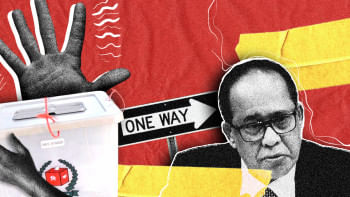
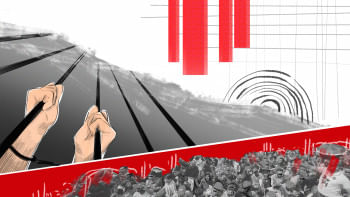
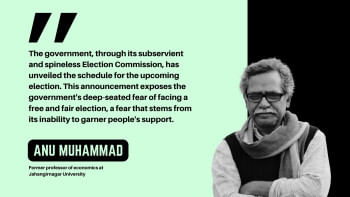
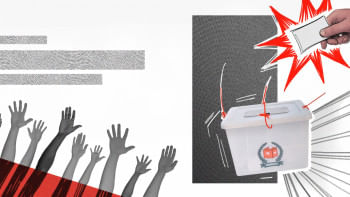
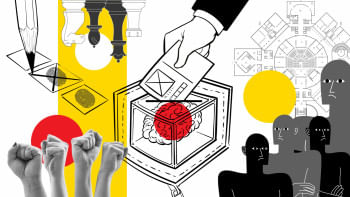
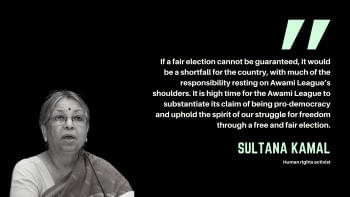









Comments